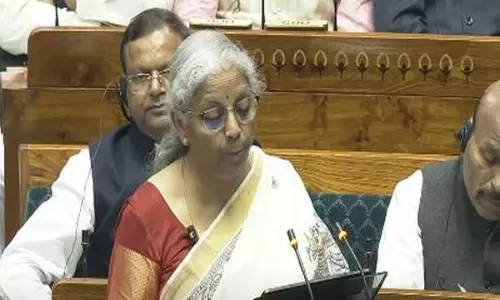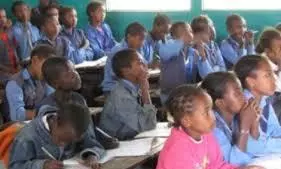
Ethiopia’s education crisis: 9 million children out of school amid conflict
text_fieldsEthiopia is grappling with an education crisis of staggering proportions, with over nine million children currently out of school.
This alarming situation is driven by a combination of armed conflicts, natural disasters, tribal tensions, and economic challenges, leaving nearly 35% of school-aged children without access to education.
In 2023, Ethiopia’s school-aged population totaled 35.4 million, but only 22.9 million children were enrolled in schools. The ongoing humanitarian crisis has worsened this situation, particularly in conflict-ridden regions like Amhara, Oromia, and Tigray. Together, these regions account for 8.9 million out-of-school children. Amhara has been hit hardest, with just 2.3 million students enrolled out of a total of seven million.
As of November 2024, more than 10,000 schools across the country had been damaged, while over 6,000 were forced to close due to conflict, violence, and natural disasters. Earthquakes in the eastern regions have further displaced tens of thousands of civilians, adding to the crisis.
The absence of education leaves children vulnerable to a host of risks, including child labor, early marriage, and exploitation. Scholars have highlighted the long-term impacts on cognitive, social, and emotional development, with uneducated children facing limited opportunities for employment and a greater likelihood of poverty.
The societal consequences are equally severe. A lack of education perpetuates poverty cycles, reduces economic productivity, weakens social cohesion, and stifles national progress. The education gap also exacerbates inequalities and hinders Ethiopia’s capacity to develop the skilled workforce necessary for sustainable growth.
Prime Minister Abiy Ahmed’s government has been criticised for its approach to the crisis. While the federal government oversees national education policies, the responsibility for implementing them falls to regional governments. This has left regions struggling to secure resources.
In November 2024, advocacy groups from Amhara’s public universities appealed for international aid to address the education shortfall. Similarly, in January 2025, the Amhara regional government called on stakeholders to support the reopening of schools. Critics argue that the federal government has focused on promoting positive narratives rather than addressing urgent challenges, further delaying recovery efforts.
Experts emphasise the need for immediate and coordinated action to address Ethiopia’s education crisis.
Key recommendations include the need for coordinated efforts to address Ethiopia’s education crisis. These include engaging in meaningful dialogue to resolve ongoing conflicts and restore stability, ensuring that the government takes proactive steps toward conflict resolution. Additionally, a renewed global commitment to funding education during emergencies is crucial for rebuilding damaged schools and restoring access to education.
International development partners are urged to prioritise Ethiopia’s education challenges by providing a comprehensive and sustained humanitarian response.























